NEWS
Rue21 Bows Out: Another Retailer Closes All Doors
Published
8 months agoon
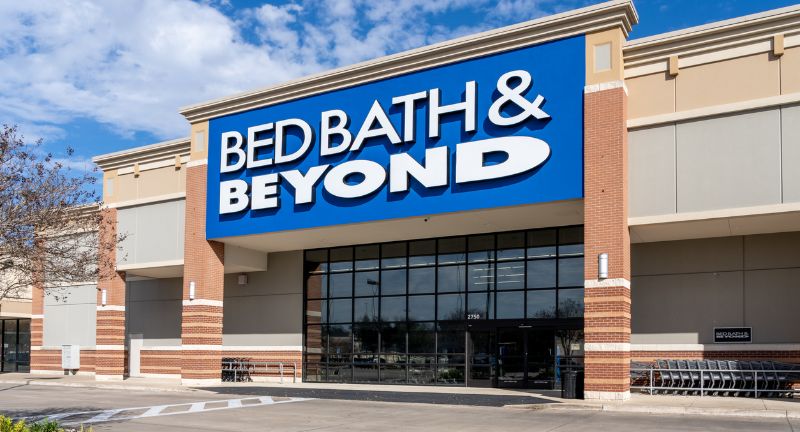
In early May, Rue21, a popular teen fashion retailer, filed for bankruptcy for the third time. This significant move highlights a growing trend of retail companies closing all physical stores due to increasing financial pressures and changing consumer preferences. With shoppers gravitating towards e-commerce platforms for their convenience and competitive prices, traditional brick-and-mortar retailers like Rue21 find it challenging to stay relevant. Unable to keep up with fast-fashion brands and digital-native competitors, Rue21’s bankruptcy underscores the difficulties retailers face in the rapidly shifting modern retail landscape. These closures will result in thousands of employees losing their jobs, serving as a stark reminder of the economic impact retail bankruptcies can have on local communities.
Bed Bath & Beyond Declares Bankruptcy and Shuts Down All Stores

IStock
In 2023, Bed Bath & Beyond filed for Chapter 11 bankruptcy, leading to the closure of all its stores and signaling the end of an era for the beloved home goods retailer. Once a market leader, the company faced challenges due to changing consumer preferences and intense competition from e-commerce giants. Despite its attempts to rejuvenate the business through store remodels and innovative strategies, mounting financial issues proved insurmountable. The iconic blue coupons, once a common sight in many households, are now a thing of the past.
Impact of Rue21’s Store Closures on Shopping Malls
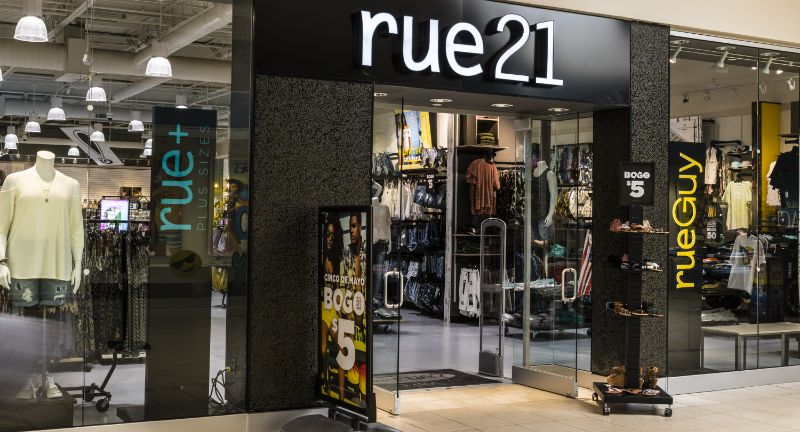
Shutterstock
The shutdown of Rue21 stores is set to further unsettle shopping malls, where the chain has been a major tenant. Already facing challenges due to the decline of physical retail stores, many malls will now have additional vacancies as a result of Rue21’s departure. This development could create a cascading effect, possibly deterring new retailers from renting space in these malls. The scenario highlights the urgent necessity for mall operators to diversify their tenant portfolio to ensure their survival.
Christmas Tree Shops
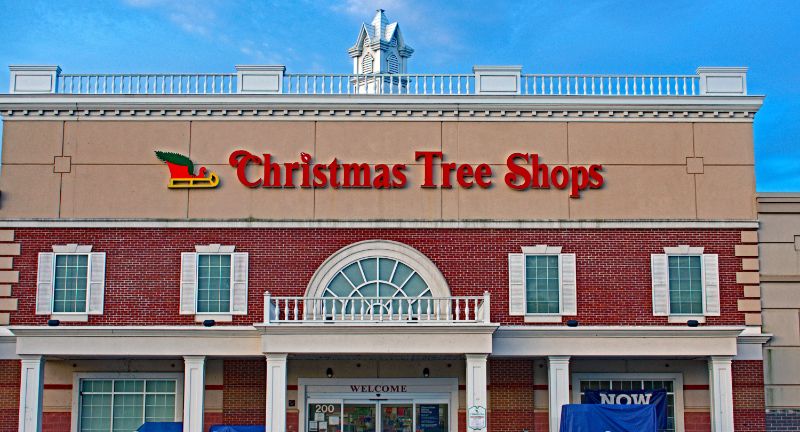
Shutterstock
Christmas Tree Shops, a cherished retailer famous for its holiday-themed and year-round home products, declared bankruptcy in 2023. Originating in Cape Cod in the 1950s, the company grew nationwide, offering a wide variety of holiday decorations. However, increased competition and the ongoing impact of the pandemic led to the closure of all its stores, ending a cherished tradition for many holiday lovers.
Stein Mart
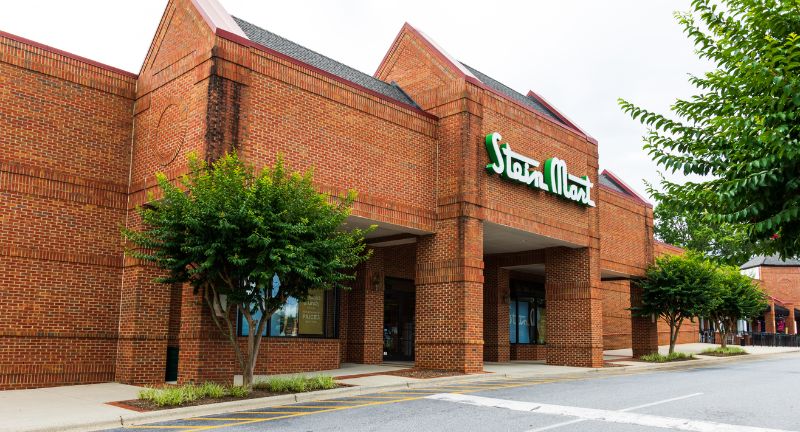
IStock
Stein Mart, a well-known off-price department store that offered designer brands at discounted rates, filed for bankruptcy in 2020. Despite maintaining a strong regional presence, the company couldn’t survive the dual pressures of the COVID-19 pandemic and the growing shift towards e-commerce. As a result, Stein Mart chose to liquidate and closed all its stores within that year. This closure brought an end to a long-standing tradition for shoppers in search of affordable fashion and home goods.
The Rise and Fall of Sports Authority

Shutterstock
Once a dominant force in the U.S. sporting goods market, Sports Authority faced Chapter 11 bankruptcy in 2016. After its founding in 1987, the retailer enjoyed years of success but eventually struggled due to declining sales and fierce competition. The emergence of online shopping and shifts within the sporting goods industry further compounded its challenges. Ultimately, Sports Authority liquidated its assets, closed all its stores, and left behind only memories for athletes and outdoor enthusiasts. This event marked a pivotal shift in the industry, opening opportunities for specialized and online retailers to thrive.
Financial Woes
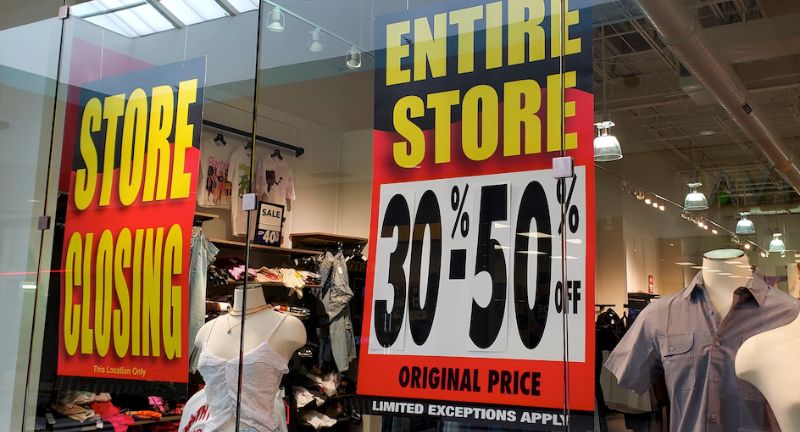
Shutterstock
Rue21 has long catered to teenagers and young adults, a demographic that has increasingly shifted to online shopping. Despite efforts to revamp its product offerings and digital presence, Rue21 struggled with mounting debt and declining in-store sales. Intense competition from fast-fashion brands like H&M and online retailers like Shein further eroded its market share. The bankruptcy filing underscores the challenges traditional retailers face in the age of e-commerce.
Rue21 to Close All Store Locations in Major Business Shift
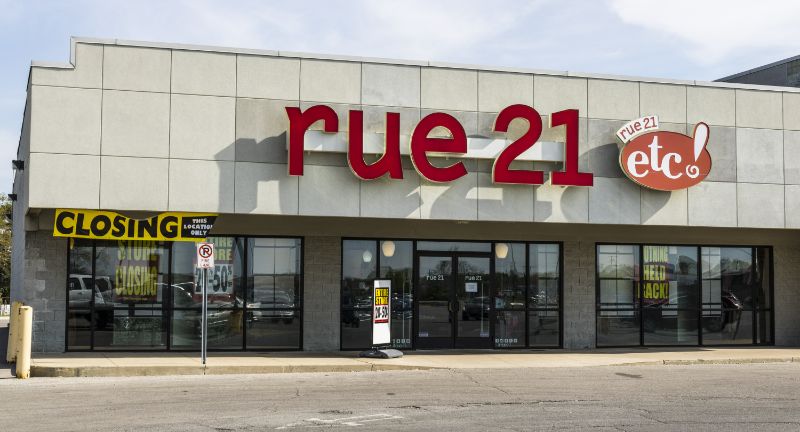
Shutterstock
In a significant departure from previous bankruptcy procedures, Rue21 has announced it will close all of its store locations. This decision will impact approximately 600 stores across the nation, resulting in thousands of job losses. The drastic measure underscores the company’s struggles to keep up with evolving consumer preferences and shopping habits among its target audience. The rise of online competition and changing consumer behavior have heavily affected its physical retail operations.
Impact From E-Commerce
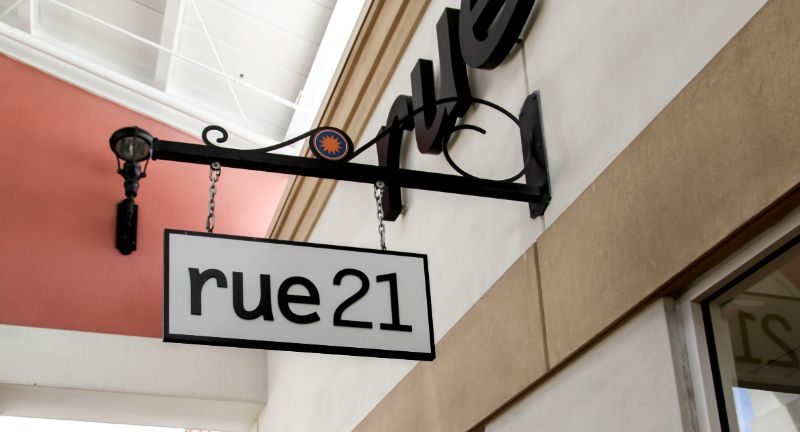
Shutterstock
Rue21’s bankruptcy highlights a broader shift towards online shopping within the retail industry. Retailers that emphasize the in-store experience are finding it increasingly difficult to compete with brands that are native to the digital space. E-commerce platforms provide consumers with greater convenience, a wider selection of styles, and often lower prices. Rue21’s failure to adapt to these trends ultimately led to its downfall. The retailer now joins the list of companies that have closed all their store locations in the United States.
Lord & Taylor
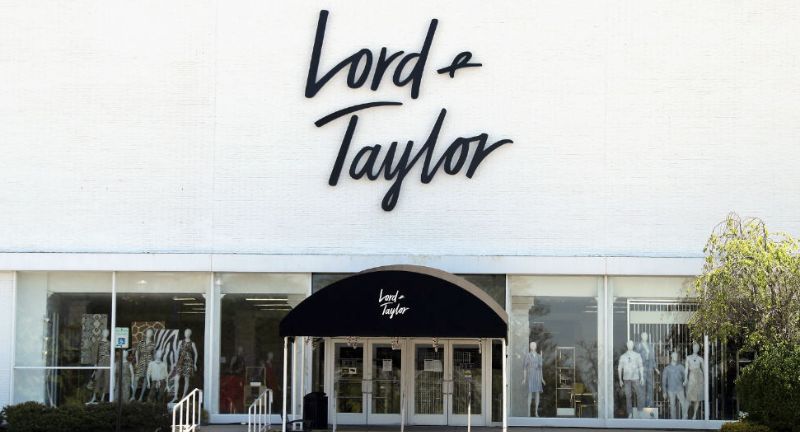
Getty
Lord & Taylor, the oldest department store in the United States, filed for Chapter 11 bankruptcy in 2020 and subsequently closed all of its locations in 2021. Known for its high-end fashion and sophistication, the retailer struggled to adapt to evolving consumer preferences and the increasing dominance of online shopping. Despite its rich history that began in 1826, Lord & Taylor was unable to thrive in the modern retail environment. Its historic flagship store in New York City now serves as a melancholic symbol of the retail industry’s past grandeur.
Tuesday Morning Files for Bankruptcy
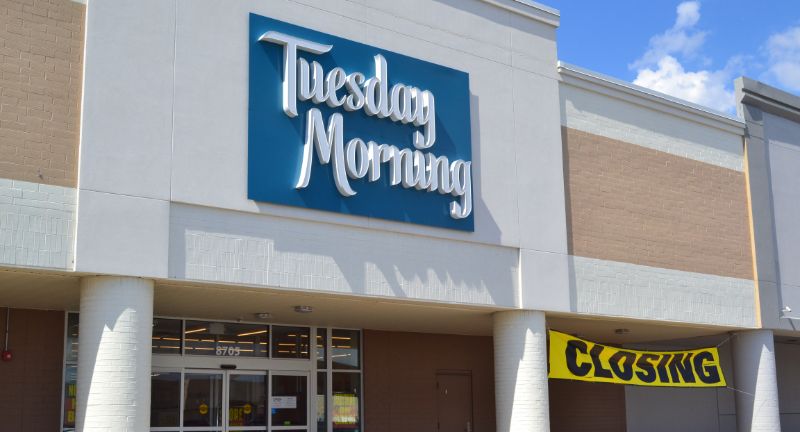
Shutterstock
Tuesday Morning, a retailer renowned for its deeply discounted home goods, filed for Chapter 11 bankruptcy in 2023, which resulted in the closure of all its stores. Established in 1974, the store attracted a dedicated customer base with its treasure-hunt shopping experience. However, challenges such as the COVID-19 pandemic and supply chain disruptions exacerbated its financial difficulties. Despite various restructuring efforts, Tuesday Morning was unable to recover, creating a void in the off-price retail industry.
Impact of Rue21 Closure on Employees and Communities
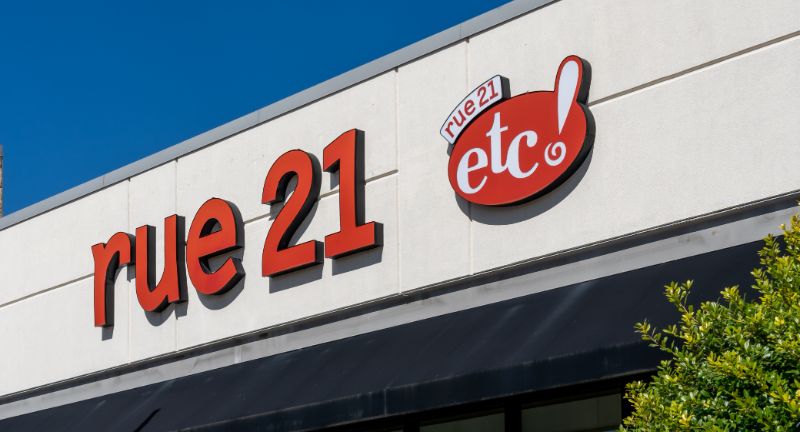
Shutterstock
The shutdown of Rue21 stores will lead to substantial job losses for its workforce, which includes numerous part-time employees who depend on their wages to support their families. Furthermore, the communities that host Rue21 outlets will experience economic setbacks due to reduced consumer spending. The closures may also intensify competition among displaced employees vying for new positions in an already overcrowded retail job market. This situation highlights the wider socio-economic consequences of retail bankruptcies.
Payless ShoeSource
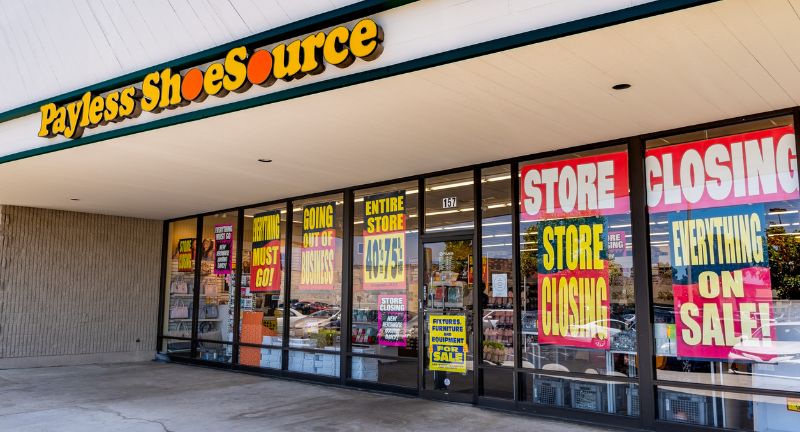
IStock
Payless ShoeSource, once a beloved retailer offering affordable footwear for families, filed for Chapter 11 bankruptcy in both 2017 and 2019. Despite efforts to restructure, the company struggled against changing consumer trends and competition from online retailers. Consequently, in 2019, Payless decided to close all of its North American stores, ending a cherished shopping era for many. Nonetheless, Payless remains operational internationally, where the brand continues to succeed.
Rue21 Declares Third Bankruptcy
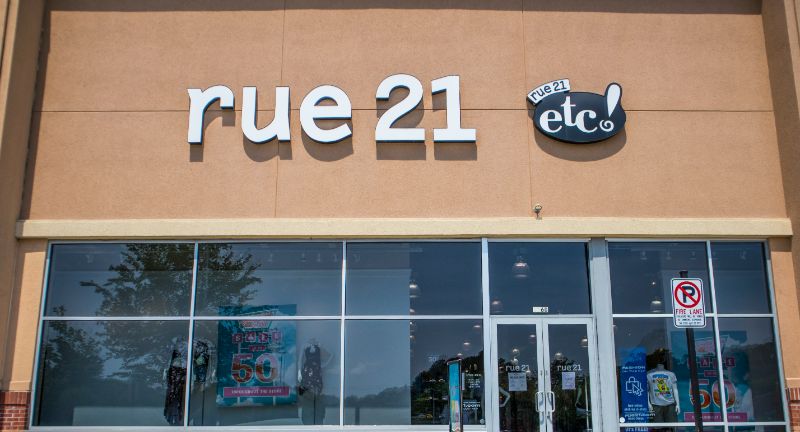
Shutterstock
Rue21, a well-known retailer specializing in teen apparel, has filed for bankruptcy for the third time, highlighting persistent financial issues. The retailer first declared bankruptcy in 2017, followed by a second filing in 2020 due to pandemic-induced difficulties. This latest bankruptcy filing, announced in May 2024, signifies another attempt to reorganize its financial structure. Despite earlier initiatives, Rue21 has faced challenges in sustaining profitability in a swiftly changing retail market.
Conclusion
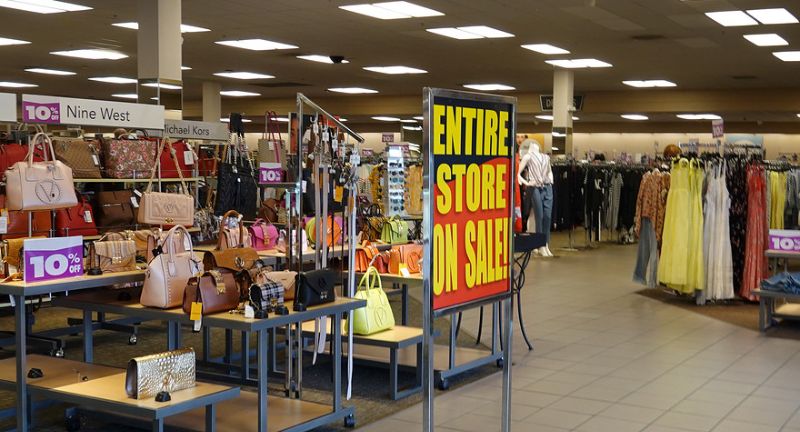
Getty
Rue21 has decided to close all its stores, following in the footsteps of other once-popular retail giants like Bed Bath & Beyond and Lord & Taylor, which have also recently shut down their entire physical presence. These widespread closures indicate a significant shift in the retail sector, as even well-established brands struggle to keep up with changing consumer behaviors. For Rue21, bankruptcy and the loss of all its physical locations signify the end of an era. The retail industry now faces the immediate challenge of reinventing itself to remain relevant in an increasingly digital marketplace.
More Money + Investing
-


15 Powerful Arguments to Ban Electric Cars Permanently
-


18 Ultra-Rare U.S. Stamps Worth a Fortune
-


15 Bad Habits Keeping You From Being A Millionaire
-


Snowflakes and 17 Conservative Stereotypes That Drive Democrats Up the…
-


25 Epic Car Flops That Made History
-


30 Aldi Treasures You Can’t Leave Without
-


20 Sneaky Habits That Could Sabotage Your Retirement
-


25 Genius Staging Tips to Speed Up Your Home Sale
-


15 Spending Habits That Shout ‘I’m Flat Broke!’
-


25 Scams Aimed Squarely at Seniors
-


20 Motivations Behind Baby Boomers’ Shift to Minimalism
-


19 Valid Baby Boomer Gripes That Make Total Sense
